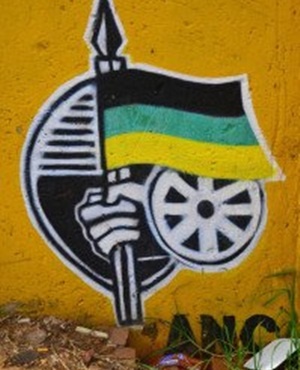
Before the 1999 elections, the ANC published an acerbic analysis of the prospects of its rival, the Pan Africanist Congress. Titled The Pan Africanist Congress of Azania: A viable alternative or a flat spare-tyre, the document sought to demonstrate that the party of Robert Sobukwe was organisationally and ideologically too weak be an option for voters.
The electoral decline of the PAC – from five parliamentary seats in 1994 to one seat in 2014 – has proved the ANC propaganda pamphleteers correct. But no one would have anticipated that the ANC would embrace in 2017 elements of the PAC perspectives it attacked in the "flat spare-tyre" pamphlet.
The Pamphle’s section on Pan Africanism is worth reading again. "On the one hand [Pan Africanism] has been used [by the PAC] to justify the opportunistic incitement of spontaneous, raw anti-white (and also in many cases anti-Indian) sentiments. Of course, these sentiments exist in our country, and the objective grounds, particularly of a spontaneous anti-white feeling, should be obvious to anyone," the document reads.
It further states: "But it is one thing to recognise the existence of these sentiments, and then to work with them, to organise, educate and mobilise the sense of national grievance into a purposeful liberation struggle. It is quite another thing simply to worsen racial tension, as the PAC has often done, and hope this will result in liberation."
So much has happened since the pamphlet was written. The PAC is on the verge of dying. But what concerned the ANC about the PAC in the late 1990s hasn’t died.
Through the Economic Freedom Fighters, a brand of anti-white Pan Africanism is rising. With unemployment at nearly 50% among the African youth, and the government unable to find a solution, the ground appears fertile for left-wing extremism and angry politics.
EFF leader Julius Malema is styling himself as a representative of the legitimate concerns of the unemployed, appropriating the grievance for the political fortunes of his party. The EFF’s politics is a cocktail of mobilising the sense of national grievance into a struggle for land, while at the same time appearing to be anti-white. In his rhetoric, the former often gets lost as Malema shifts to race as a mobilising tool.
The electoral support the EFF enjoys suggests that there are angry people who feel represented by Malema and company. But, as the PAC came to realise, it’s not the kind of politics that can lead to victory at the polls. It is also not sustainable in a diverse country like South Africa.
The most remarkable thing about the EFF, though, is that it is succeeding in transforming the ANC to abandon some of its key positions. The land question provides a fascinating case of how an opposition party can, with extraordinary success, impose its policy positions on the governing party.
At its December conference, the ANC adopted a resolution in favour of expropriation of land without compensation in a manner that won’t affect other sectors of the economy and food security. Whether the ANC admits it or not, the reality is that the resolution was as a result of two factors: an attempt to neutralise the vigorous land campaign of the EFF and an attempt by the Jacob Zuma faction to legitimise their looting of state resources, using radical language of land as a cover.
The EFF’s parliamentary motion (with amendments by the ANC) for expropriation of land without compensation was a continuation of the ANC’s attempt not to be seen to be preventing redistribution of land to black people. Certainly not ahead of an election next year and not after a resolution with qualifications was passed by the ANC’s 54th conference.
The Zuma looting camp is disintegrating and there is no longer a need for radical rhetoric as a cover for theft of public resources.
Significantly, the land resolution at the ANC conference was adopted before the election of new leaders. Now, if President Cyril Ramaphosa’s new dawn shuns looting of state resources, it means there’s no need for a radical rhetoric as a cover for theft. Land reform can be radically fast-tracked if government employs competent people to implement existing policies with the necessary commitment.
But the failure of the ANC government in implementing these policies – a failure incorrectly blamed on the Constitution – has given the EFF a political space to mobilise. The ANC is managing this by transforming itself into a political chameleon, adding an EFF red (or is it a PAC green?) into its colours.
Expropriation without compensation means deprivation of property, which the Constitution prohibits. By referring the matter to the Constitutional Review Committee of Parliament, the ANC and the EFF - the drivers of this process - seek to legalise the impossible. If they think the matter will be resolved there, they are really dreaming.
The committee will have to receive piles of public submissions from across the country. In fact, the extent of public interest in this matter will require that Parliament go to every village, town, city and township to seek public input. Failure to undertake a thorough public consultation process will make the outcome vulnerable to challenge.
The deprivation of property rights doesn’t only affect descendants of white settlers, as Malema would like the public to believe. Black investors will also feel the pain. There will be a general sense of national insecurity.
If the parliamentary process succeeds, there is a real possibility that, by the time someone goes to the Constitutional Court to challenge amendments to the property clause, we will be having a worthless currency and banks will be teetering on the brink as the integrity of the mortgage system collapses. And there will be massive outflow of capital. The EFF will not be concerned about collapsed banks, because it wants to nationalise them without compensating shareholders anyway.
The reason why these economic calamities are not happening now is that investors still believe that ANC is far from being a flat spare-tyre. In other words, the ANC wouldn’t want to collapse the economy and risk being on the opposition benches in Parliament.
Investors think that the ANC, despite its costly mistakes, can still do the right things. The ANC needs to show that confidence in it is justifiable.
- Mkhabela is a political analyst with the Department of Political Science at the University of South Africa.
Disclaimer: News24 encourages freedom of speech and the expression of diverse views. The views of columnists published on News24 are therefore their own and do not necessarily represent the views of News24.




 Publications
Publications
 Partners
Partners























